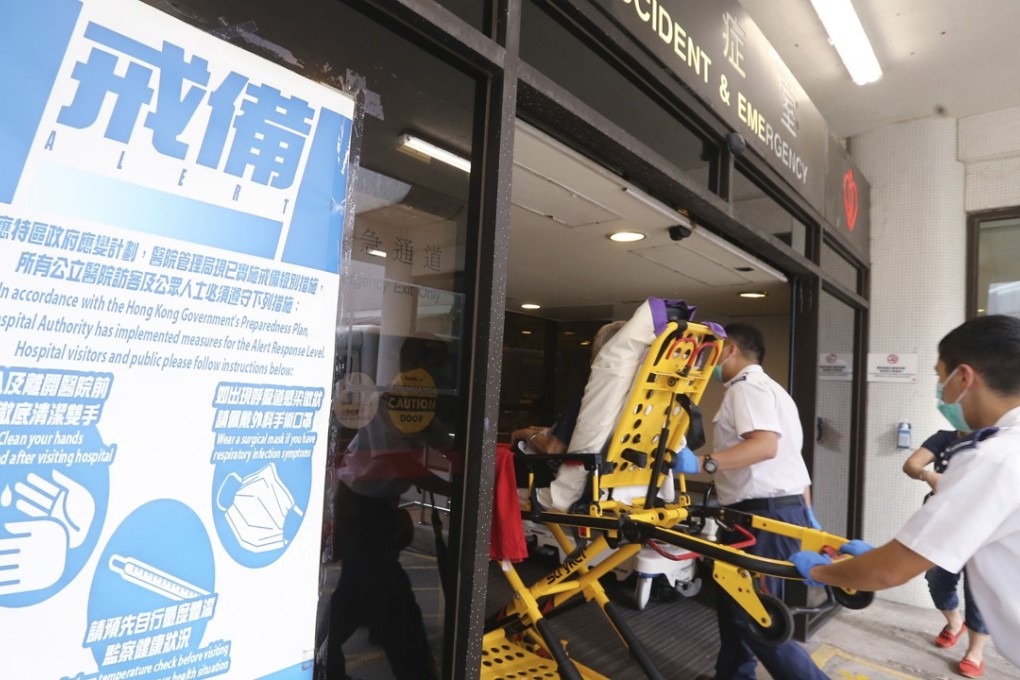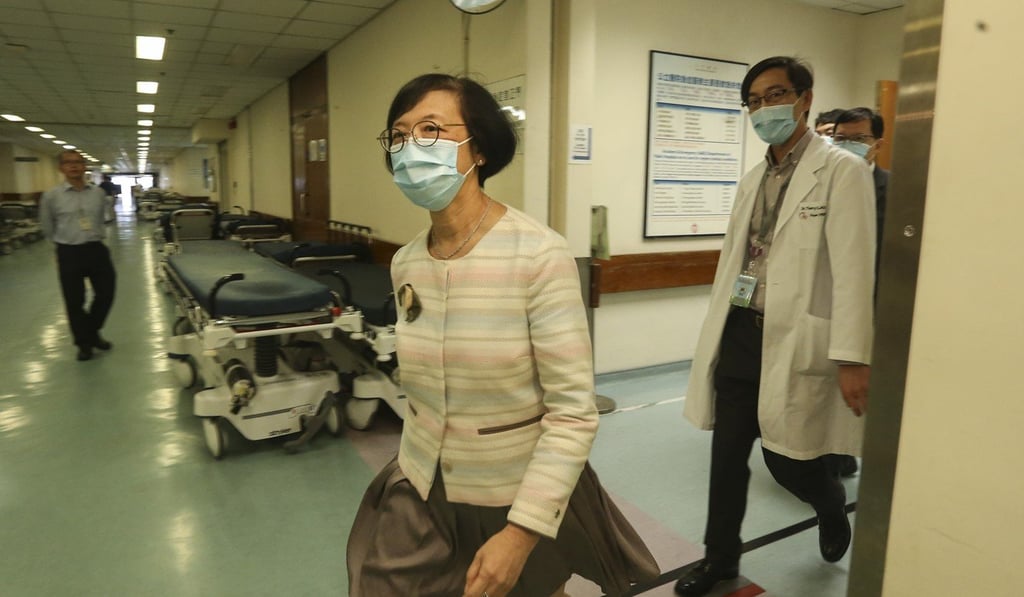Fewer than 10 doctors answer appeal for help from Hong Kong public hospitals struggling against flu surge
Health minister says volunteering exercise still in its early stage, as facilities grapple with summer flu strain that has left 208 people dead since May

Fewer than 10 doctors from Hong Kong’s Department of Health have volunteered to work at overcrowded public hospitals on their days off to help battle a surge in summer flu patients, the city’s health minister said, three days after the government appealed for assistance.
Secretary for Food and Health Sophia Chan Siu-chee said on Saturday she hoped more doctors would sign up in the coming days after the Hospital Authority asked administrative and research doctors working in the department to come to their aid amid a summer flu strain that has caused 208 deaths since May.
The authority, which manages public hospitals in the city, on Friday announced an extra HK$20 million in spending to secure 48 beds at the privately run St Teresa’s Hospital over the next two months to cope with the crisis.
But Chan on Saturday sidestepped questions on whether the lukewarm response from doctors had contradicted authority director Dr Cheung Wai-lun’s description of it as “good” just a day earlier.

The minister said the exercise was still in its early stage.